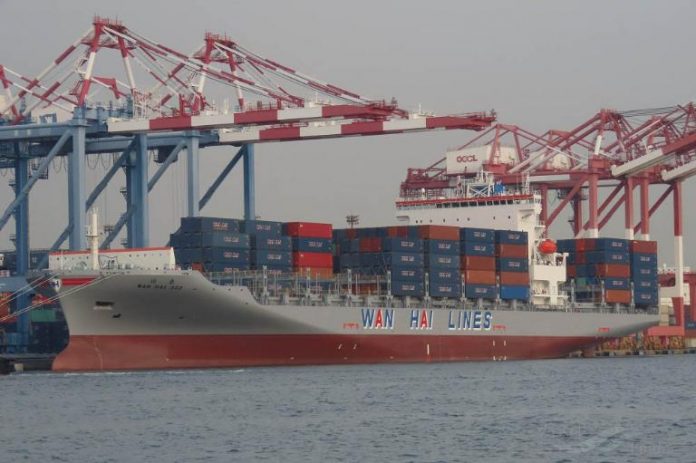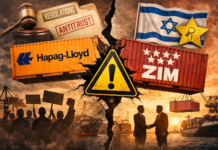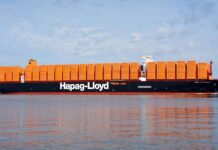
Taiwanese liner operators Wan Hai Lines and Evergreen Marine Corporation will use massive 2020 profits, built on soaring freight rates, to develop their fleets and services.
[s2If is_user_logged_in()]Wan Hai Lines’ net profit increased nearly fourfold in 2020. The company said on 23 March that it made a net profit of TW$11.36 billion (US$404.32 million) in 2020, compared with TW$3.57 billion (US$118.93 million) in 2019. Revenue reached TW$81.88 billion (US$2.91 billion), up from TW$59.1 billion (US$1.97 billion) in 2019.
Evergreen achieved a net profit of TW$28.77 billion (US$1.02 billion), reversing its net loss of TW$223.01 million (US$7.4 million) in 2019. Its revenue totalled TW$207.08 billion (US$7.37 billion), up from TW$190.59 billion (US$6.34 billion) in 2019.
Lured by soaring freight rates caused by unbalanced Pacific trades and container shortages, Wan Hai, primarily an intra-Asia carrier, began a solo Transpacific service, China Pacific Service 1, in July 2020 and has since extended this to four loops due to good demand.
Wan Hai, now the eleventh largest liner operator, is expanding its fleet with newbuildings and second-hand ship purchases, amid record-high freight rates. The company’s capacity totals 329,390TEU, including 71 owned ships.
In January, the company commissioned a dozen 3,013TEU newbuildings from Japan Marine United Corporation (JMU) and Nihon Shipyard, for delivery between 2022 and 2023. This was followed by nine 13,000TEU newbuildings commissioned at Hyundai Heavy Industries in March, for delivery in 2023.
Since earmarking US$360 million to acquire second-hand ships in December 2020, Wan Hai has also purchased 11 such vessels.
Evergreen also announced on 23 March that it has ordered twenty 15,000TEU ships, with the orders to be divided between Japan’s Imabari Shipbuilding, South Korea’s Hyundai Heavy Industries and Samsung Heavy Industries and China’s Hudong-Zhonghua Shipbuilding (Group) and Jiangnan Shipyard.
The carrier is thought to own 10 of the ships, while Imabari’s ship-owning affiliate, Shoei Kisen Kaisha, will commission the other 10 ships for long-term charter to Evergreen.
Martina Li
Asia Correspondent
[/s2If]
[s2If !is_user_logged_in()]Please login or register to read the rest of the story[/s2If]





